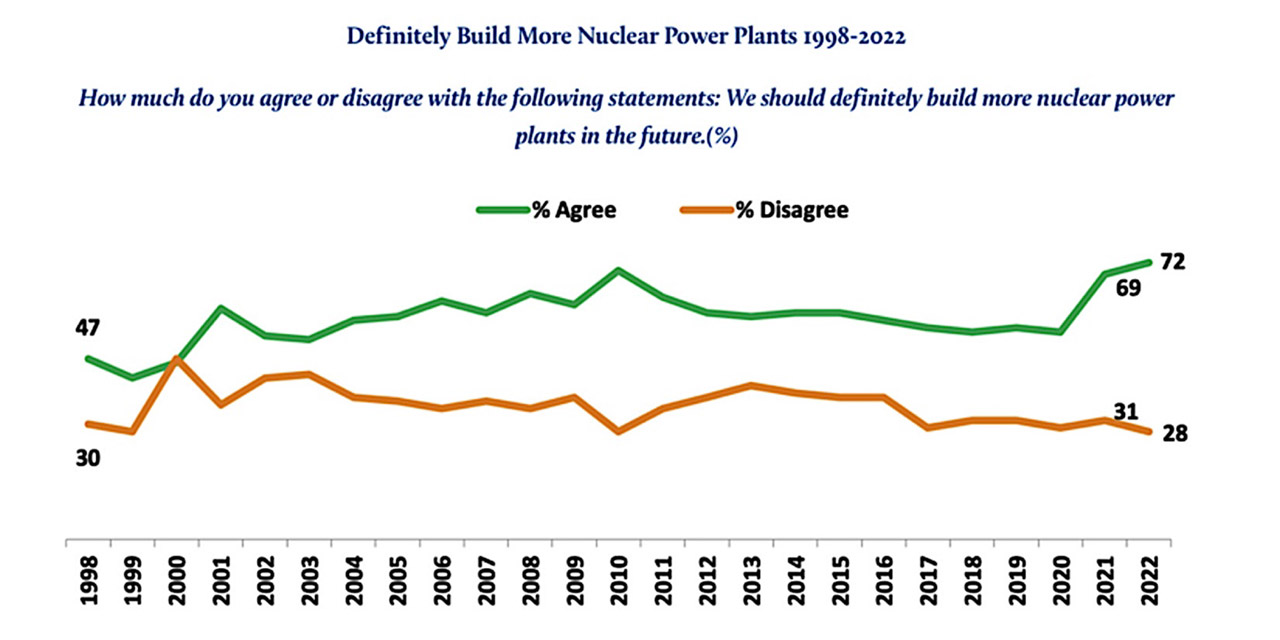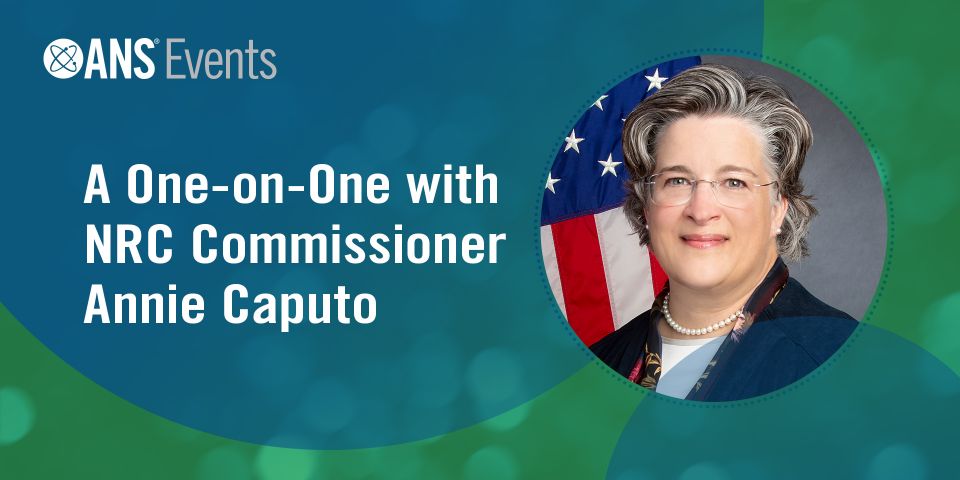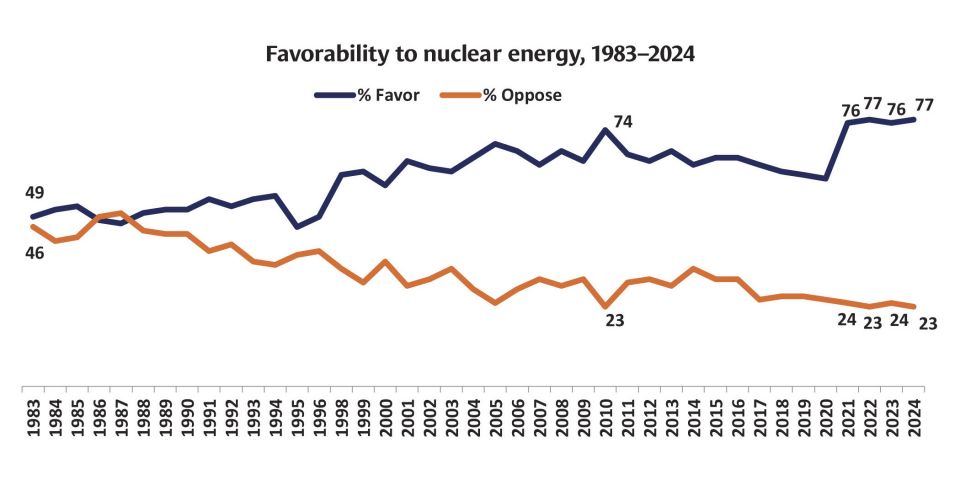This year’s survey was conducted May 10–19 and included 1,000 adults who were considered to be representative of the national population. Results had a margin of error of ±3 percentage points.
Nuclear energy support: According to the survey, 77 percent of the U.S. population “strongly or somewhat favored” the use of nuclear energy to provide electricity, while 23 percent opposed. This level of support for nuclear energy not only retains but improves upon last year’s spike in favorability, which comes after support had plateaued in the 60-percent range during the past decade and is a substantial increase over the 49 percent favorability found in 1983, the poll’s first year.
New nuclear plants: The survey found that 86 percent of the public agreed that licenses should be renewed for nuclear power plants that meet federal safety regulations, 84 percent agreed that preparations should be made now for advanced nuclear plants, and 72 percent agreed that new nuclear plants should “definitely” be constructed—the latter number up from 69 percent in 2021’s poll and an “unprecedented” level of support for new plants over the past 24 years. Such support was only 47 percent in 1983.
Demographic differences: In demographic analyses of the survey results, support for nuclear energy was strongest among men, Republicans, conservatives, and younger people (generation Z and millennials). Support for nuclear energy stood at 82 percent of men (compared with 72 percent of women); 81 percent of Republicans (76 percent of Democrats and Independents); 84 percent of conservatives (75 percent of moderates, 70 percent of liberals); 82 percent of Trump voters (73 percent of Biden voters); and 79 percent of generation Z and millennials (76 percent of boomers, 74 percent of generation X).
Information leads to support: In another survey finding, only 16 percent of respondents said that they felt “very well informed” about nuclear energy. Of those who felt very well informed, 73 percent strongly supported nuclear energy and 10 percent strongly opposed it. Respondents who said that they felt “not at all informed” about nuclear energy had the least favorable attitudes toward the power source.
Green goals: In terms of environmental issues, survey participants were asked to rate the importance of seven “environmental advantages of current or future nuclear power plants.” Clean air and clean drinking water were rated within the top two advantages by 48 percent and 46 percent of respondents, respectively. “Enabler of renewable energy” and “preservation of natural resources” were placed in the top two by 27 percent and 26 percent, respectively.
Work to do: The survey findings show that despite record high support for nuclear, public opinion is changeable. A large segment of the public takes the middle ground, and the poll found that people generally underestimate the overall public support for nuclear. Additionally, a large percentage of people do not feel “very well informed” about nuclear, and since that category of respondent is more likely to feel favorably toward the technology, the nuclear community has an opportunity to “firm up these [positive] attitudes” by continuing to spread information about the benefits of nuclear power generation.






 2x1.jpg)

